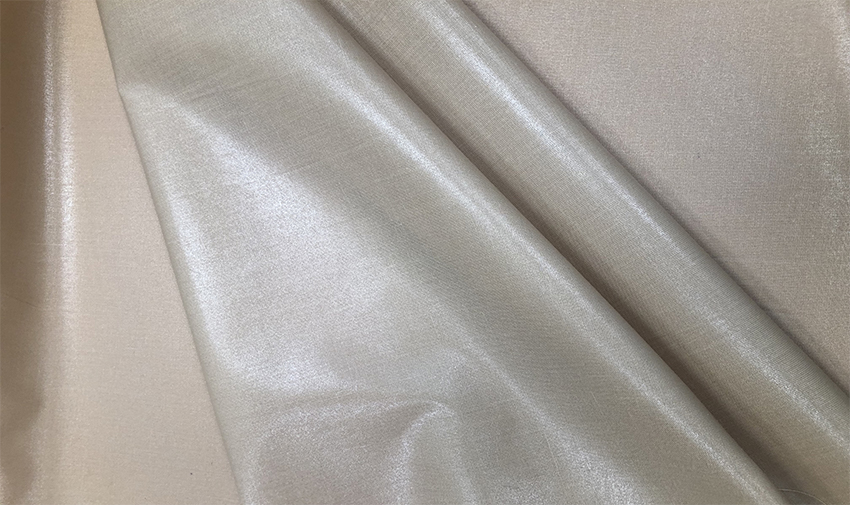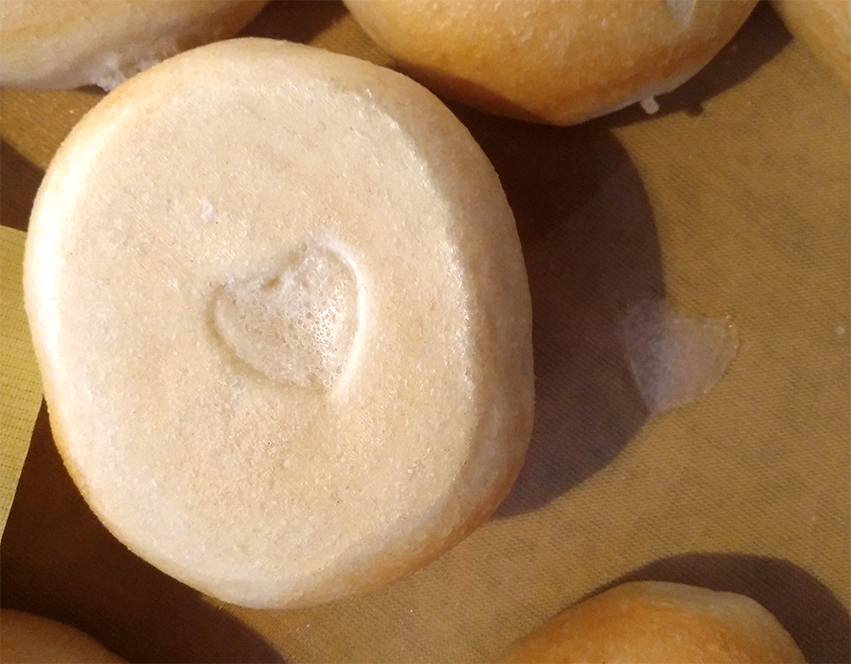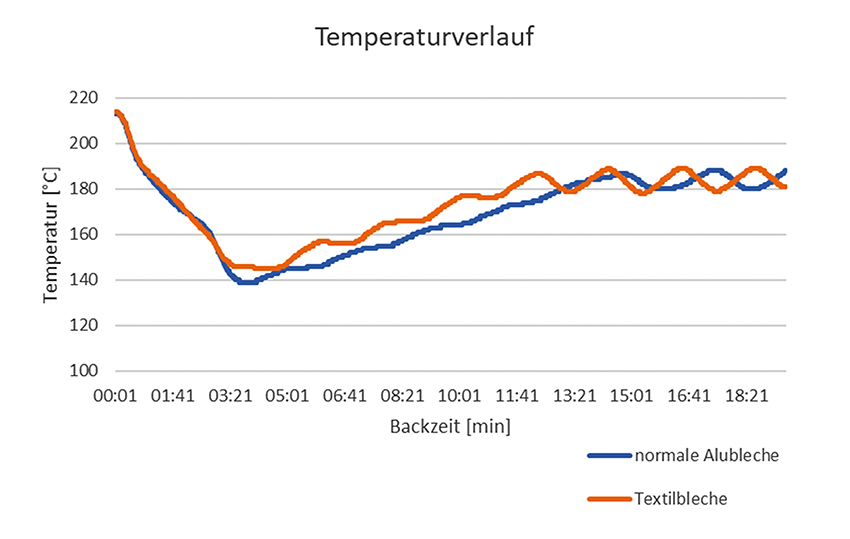Completed funded project
Motivation
In bakeries, trays are used as a standard base for the baked goods in combination with baking paper or flour, which leads to high amounts of waste or health impairments (baker's asthma). The baking trays are also heavy and unwieldy, and their mass also affects the energy consumption in the oven. The project aims to develop a light and flexible textile solution, functional with RFID chips and the possibility of branding.
Objectives
The focus is on the development of a textile back covering with the following properties:
- Light and flexible
- Temperature resistant (-40 to 300°)
- Food safe, no release of harmful substances
- Washable and reusable
- Low energy consumption
Furthermore, the textile should be equipped with additional functions:
- Production data acquisition by means of RFID chips (Industry 4.0)
- Branding for targeted advertising
Results
For the tests, thin canvas fabrics were made of p-aramid, which were coated with silicone to produce a permanent non-stick layer. In order to be able to use the textiles like a baking tray, they were stretched on a metallic frame. Baking tests showed that the temperature dropped less and heated up faster using the textile sheets than with the standard aluminum sheets. However, the air-impermeable coating makes it difficult for the hot air to circulate in the oven, so the baking program has to be adjusted.
Branding of the baked goods is best achieved by embossing in the silicone coating, which must have a certain depth to transfer to the baked goods. It is also possible to equip the textiles with RFID chips, but their functionality is limited due to the high temperatures.
Project Data
| Project Duration |
01.05.2021 - 30.04.2023 |
| Sponsor |
Bavarian Research Foundation |
| Funding Amount | 85,000 Euro |
Project Partners
|
Fraunhofer Application Centre for Textile Fibre Ceramics TFK |
| Project Coordination | Fraunhofer Application Centre for Textile Fibre Ceramics TFK |
| Project Management at the HTL | Eva Paulack |

 Fraunhofer ISC, Center for High Temperature Materials and Design HTL, Bayreuth
Fraunhofer ISC, Center for High Temperature Materials and Design HTL, Bayreuth

